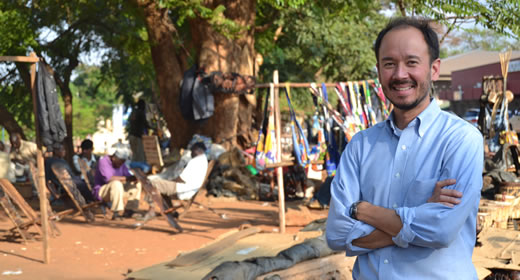
For those interested in global development and development economics, Experimental Conversations, a volume by Timothy Ogden, features an interview with Dean Yang (Chapter 12).
The book is a collection of interviews conducted by Ogden with economists, each of which examines the use and impact of randomized controlled trials (RCTs) and field experiments in the area of development economics and international anti-poverty programs.
From a recent review by David Evans for The World Bank's "Development Impact" blog, "Interviewees discuss a wide range of topics, such as the interaction between theory, prior beliefs, and what we test in the field, the role of descriptive data in changing policy, the value of fieldwork (independent of randomization), and the role of RCTs in promoting innovation."
Yang's own research focuses on the economics of developing countries, including topics such as microfinance, remittances, and international migration. Much of his work involves randomized controlled trials in field settings, such as his ongoing field experiments on ways to improve access to microlending in Malawi.
Experimental Conversations includes interviews with many prominent economists, including Nobel Prize winner Angus Deaton and MacArthur Foundation Fellowship recipient Esther Duflo. Ogden assembled the book, he says, to "offer specialists and nonspecialists alike a unique opportunity to hear economists speak in their own words, free of the confines of a particular study or econometric esoterica." It is available now from MIT Press.
Dean Yang is a professor of public policy and economics. His research, designed to address global poverty, focuses on international migration, microfinance, health, corruption, and the economics of disasters.
